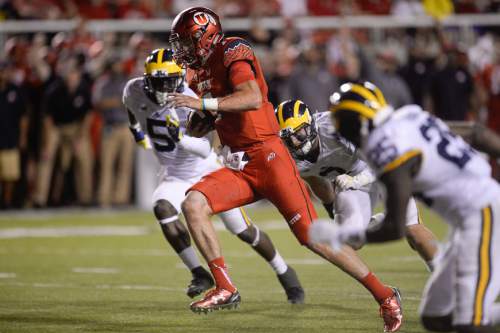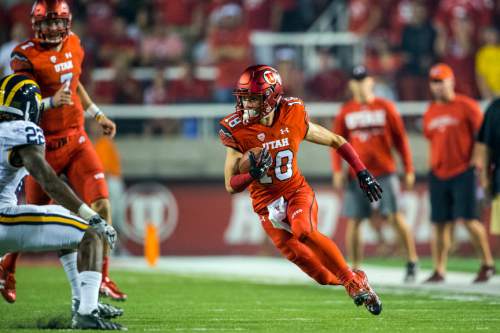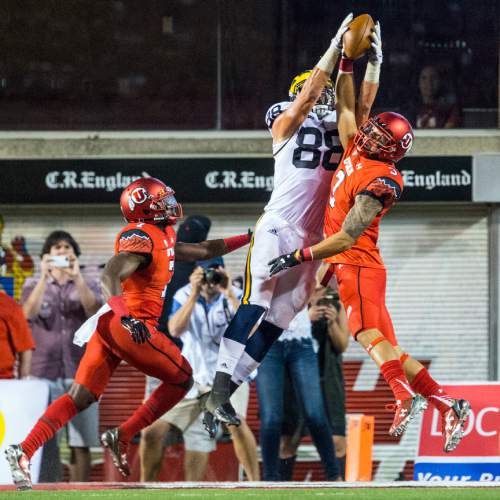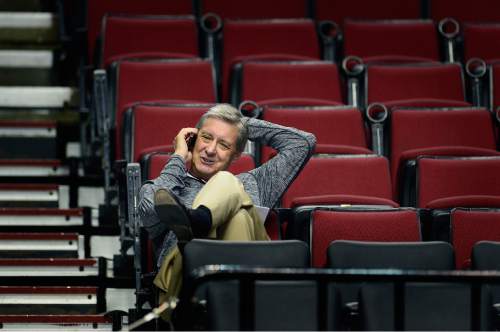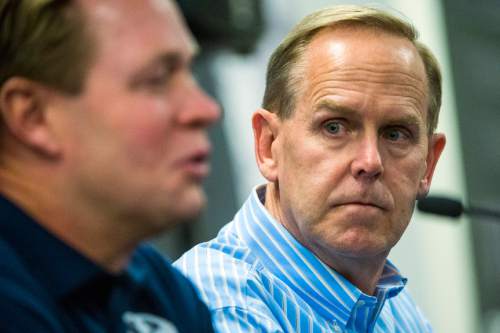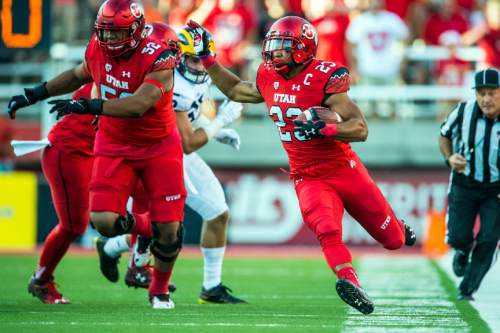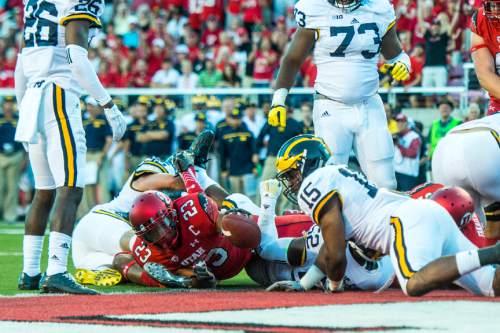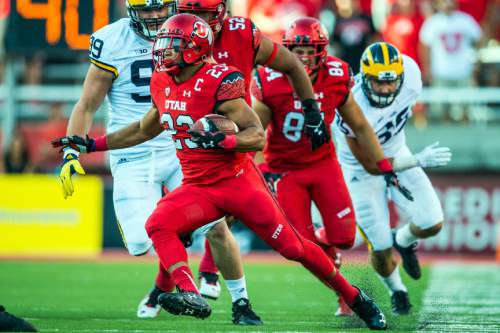This is an archived article that was published on sltrib.com in 2015, and information in the article may be outdated. It is provided only for personal research purposes and may not be reprinted.
BYU and Michigan were both "really, really difficult" nonconference opponents, Chris Hill felt, and one such opponent was enough for a team with nine challenging conference games.
So Hill chose Michigan.
Three years later, Utah's athletic director is reluctant to talk about the feedback he received for the rivalry series' two-year interruption, the first since the end of World War II, which was cut short unexpectedly by Saturday's Las Vegas Bowl.
Experience tells him it's impossible to avoid fanning the flames, Hill said, and "I just don't want to go there anymore."
But a Tribune reader survey conducted with the help of Public Insight Network indicates Utah fans are far more likely than BYU fans to support a break in the rivalry — or even an end to it.
Eleven of 15 respondents identifying as BYU fans wanted the game to be played every year, compared to just eight of 58 Utah fans. Thirty-eight Utah fans preferred to play BYU infrequently or never.
"State championships are for high schools," wrote Gary Rodgers. Utah alum Miranda Luker opined that it's more toxic than other rivalries because it pits predominantly LDS, conservative Provo against "more liberal, less Mormon" Salt Lake City.
"So the rivalry gets into too many personal attacks relating to those issues," wrote Luker.
Hill, likewise, "thought it was getting a little more chippy" in recent years.
"I could be wrong," he said. "Maybe that's just the nature of the world now, with Twitter and everything out there, that every little thing comes out as a big deal. 'So-and-so spit his chewing gum out on our sideline, how vulgar is that?' "
But the break was "all about Michigan," he said, and he solicited a wide range of input before he made the call.
"That was a unique experience and, as it turned out, a great experience. They wanted to play, and we were sitting there [saying] 'Boy, 20 years ago, if we would have thought about Michigan coming to our place?' "
The two teams are slated to play from 2016 to 2020, with odd years in Provo and even in Salt Lake City, and Hill has said that he and BYU athletic director Tom Holmoe have discussed tentative dates for 2021 and 2022.
Should Utah continue to perceive BYU as a top-tier opponent and only schedule one such opponent per season, the game may be in jeopardy for 2023 and 2024, when Utah has agreed to play Baylor.
Utes sign three early
Utah announced Tuesday that four players signed financial aid agreements for 2016, including three current preps who plan to enroll early and another who was part of Utah's 2015 class.
Teammates Tyler Huntley and Demari Simpkins, of Miramar, Fla., are expected to help fill the void at quarterback and wide receiver, respectively, after leading Hallandale to the 5A regional finals.
Offensive lineman Scott Peck, of Spokane, Wash., helped Central Valley reach the playoffs after winning just three games in 2014. Offensive lineman Jake Grant, of Scottsdale, Ariz., was rated the state's No. 6 overall prospect by the Arizona Republic.
Shop with Sly
Former Utah linebacker Stevenson Sylvester will accompany 10 children on a holiday shopping trip on Thursday, in conjunction with Utah Foster Care, and is accepting donations at http://www.gofundme.com/shopwithsly2015.
Twitter: @matthew_piper —
Las Vegas Bowl
P Saturday, 1:30 p.m. MST
TV • Ch. 4


